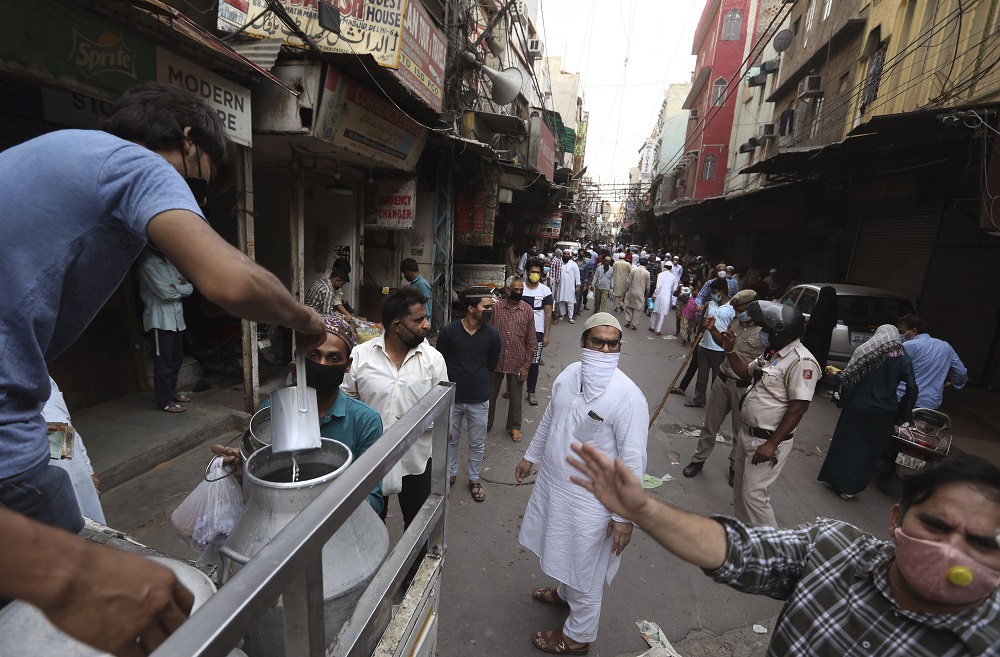Indian handling of COVID-19 outbreak defended
By PAN MENGQI | China Daily Global | Updated: 2020-04-27 09:47

A former Indian diplomat says combating the COVID-19 is a global cooperative campaign and that claims by some Western media that India's anti-epidemic practices are "backwards" is groundless.
Krishnan Srinivasan, former Indian foreign secretary, said joint efforts by countries worldwide are needed to win the global war against the pandemic, yet discordant voices are pushing "relentless negative coverage in the Western media about Indian efforts against COVID-19, contrasting the 'modern' West with the 'backward' East".
"India has not criticized any country. We see this as a global cooperative campaign," Srinivasan said.
"Apart from normal commercial transactions, India donated 15 tons of medical equipment to China and received two gifts of protective equipment and ventilators from Jack Ma and Alibaba Foundations."
India had reported 26,496 confirmed cases of COVID-19 and 824 deaths by Sunday.
Sunday was the 33rd straight day of a national lockdown the government adopted to contain the spread of the pandemic. The lockdown, which Prime Minister Narendra Modi announced on March 25, has been extended until this Sunday.
Even though India had taken early action against the virus, the country had found it difficult to act decisively, needing to improvise and without any precedent to rely on, Srinivasan said.
"Modi declared a 12-hour nationwide voluntary curfew on March 22 and a full lockdown from March 24 for three weeks with relaxations for banks, groceries, medicines and the media. The national closure was the most comprehensive and stringent in history."
India has a weak surveillance system to report diseases and feeble medical and welfare services, apart from problems of implementation, as has been seen in the flawed introduction of demonetization and of value-added tax, Srinivasan said.
"No matter how much time is gained, India will never have the quantity required by way of medical personnel, testing kits, intensive care unit beds, ventilators and personal protection equipment.
So far, due to lack of resources, only symptomatic testing is being done. Various funds have been set up by the (federal government) and states to which politicians and civil servants pay obligatory amounts, while others contribute voluntarily."
The outbreak had caused hardship to millions of Indians who had never even heard of anything called a virus, Srinivasan said. However, because Indians respect their governments they have responded well, accepting that this is an emergency situation.
In a way, Srinivasan said, the lockdown has strengthened the federal nature of the country.
"In a federal union of 1.3 billion persons comprising 17 percent of humankind, 36 states and territories, diverse languages and ethnic groups, there can be no one-size-fits-all formula."
After the initial 21-day lockdown was extended, discussion in India turned to mitigating the economic consequences. While there has been some criticism of shortcomings, including an allegedly inadequate stimulus package and welfare measures, Srinivasan said the federal government and state governments are urging workers to remain at their place of employment, where they can be provided food and shelter.
























